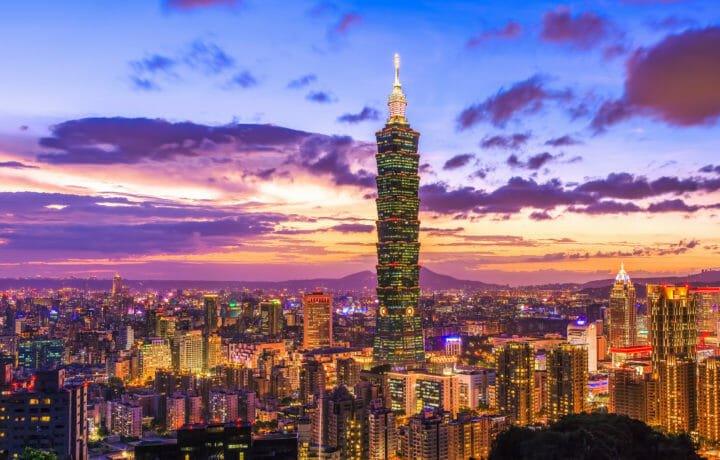President Tsai Ing-wen said Sunday that Taiwan is open for international tourism. This move is part of an effort to revitalize the country’s economic downturn brought about by the COVID-19 pandemic. However, normalization of life for most Taiwanese is illusive for this island nation. Even though Taiwan is an economic powerhouse, the external challenges facing this small island nation continue to mount.
China Aggression
China is taking an ever-increasing aggressive military stance toward Taiwan. The Chinese military continues to escalate their movements. China has violated Taiwan’s air defense identification zone (ADIZ) over 1,400 times since January of last year. Earlier this month, the Chinese Eastern Theater Command of the People’s Liberation Army (PLA) conducted several large-scale joint battle-preparation exercises in the waters and airspace surrounding Taiwan. China has held no less than a half dozen battle-ready exercises near Taiwan since the beginning of the year.
China claims democratically ruled Taiwan is Chinese territory and is applying ever increasing military and political pressure to force the island to accept Chinese rule. According to Wang Wenbin, China’s foreign minister, China claims “sovereignty, sovereign rights and jurisdiction over the Taiwan Strait.” Most understand that China has imperialistic ambitions for the region and that the Chinese government is carefully watching the international community’s response to the Russian invasion of Ukraine.
Analysts are concerned over China’s desire for imperial control over Asian nations and commerce. The thought is that controlling Taiwan is only part of the Chinese larger scale plan and that if little resistance is offered, then the international community risks green-lighting China’s efforts.
Life in Taiwan
Taiwan’s desire for a political union with China continues declining toward record low levels the last few months. According to a recent biannual survey on core political attitudes in Taiwan by the National Chengchi University, a public research university in Taipei, only 1.3% of respondents wanted unification with mainland China “as soon as possible.” Interestingly, only 5.1% desire formal Taiwanese independence, at the “earliest possibility”. Both extreme viewpoints are not well received. Respondents vastly support a “status quo” response for a semi-recognized state.
However, Taiwan’s government has denounced Chinese pressure, saying only the 23 million citizens can decide their countries future. Further, defending Taiwan from China has become a daily event for the military and government. By way of example, during Senator Rick Scott’s visit to Taipei over this past Friday, several Chinese fighter jets crossed the median line of the Taiwan Strait. With Taiwan scrambling fighter jets to intercept the Chinese planes, Senator Scott stated later in the day that the event was “a clear message of provocation.”
Not surprisingly, Taiwan has also followed Russia’s invasion of Ukraine with great interest. Violent images broadcast daily since February, have caused many Taiwanese to visualize the brutality of modern warfare, turning their fear into a realistic potential. Inspired by the Ukrainian people, the Taiwanese are preparing for a Chinese invasion. Some have quickly signed up for privately run weapons training courses and first aid lessons.
In addition to weapons procurement, Taiwan’s government is also restructuring and bolstering the army reserve program. Other experts believe Taiwan needs to model after the Ukrainian Territorial Defense Forces. This missing link provided Ukraine with a military reserve component of 37,000 active soldiers and 130,000 volunteers.
The United States
Tensions between the U.S. and China are high over multiple issues. The latest round of problems stem from the ongoing Taiwanese issue, Chinese conquests in the Pacific South China Sea, trade tariffs and Beijing’s refusal to criticize Russian President Vladimir Putin over the war in Ukraine.
U.S. and other Western companies face a massive crisis, should the Chinese invade Taiwan. Days after the Ukraine conflict erupted, large corporations such as McDonalds, Apple, and many others announced their movement out of Russia. With so many companies doing infinitely more business with China, a Taiwanese conflict would potentially cause far more collateral damage than the Russian-Ukraine War.
U.S. Secretary of State Antony Blinken met with Chinese foreign minister Wang Yi at the G20 foreign ministers meeting in Bali on July 9. Blinken said he discussed Russian aggression in Ukraine and raised concerns over Beijing’s alignment with Moscow. He added, the meeting was “constructive” and “the tone was very professional.”




